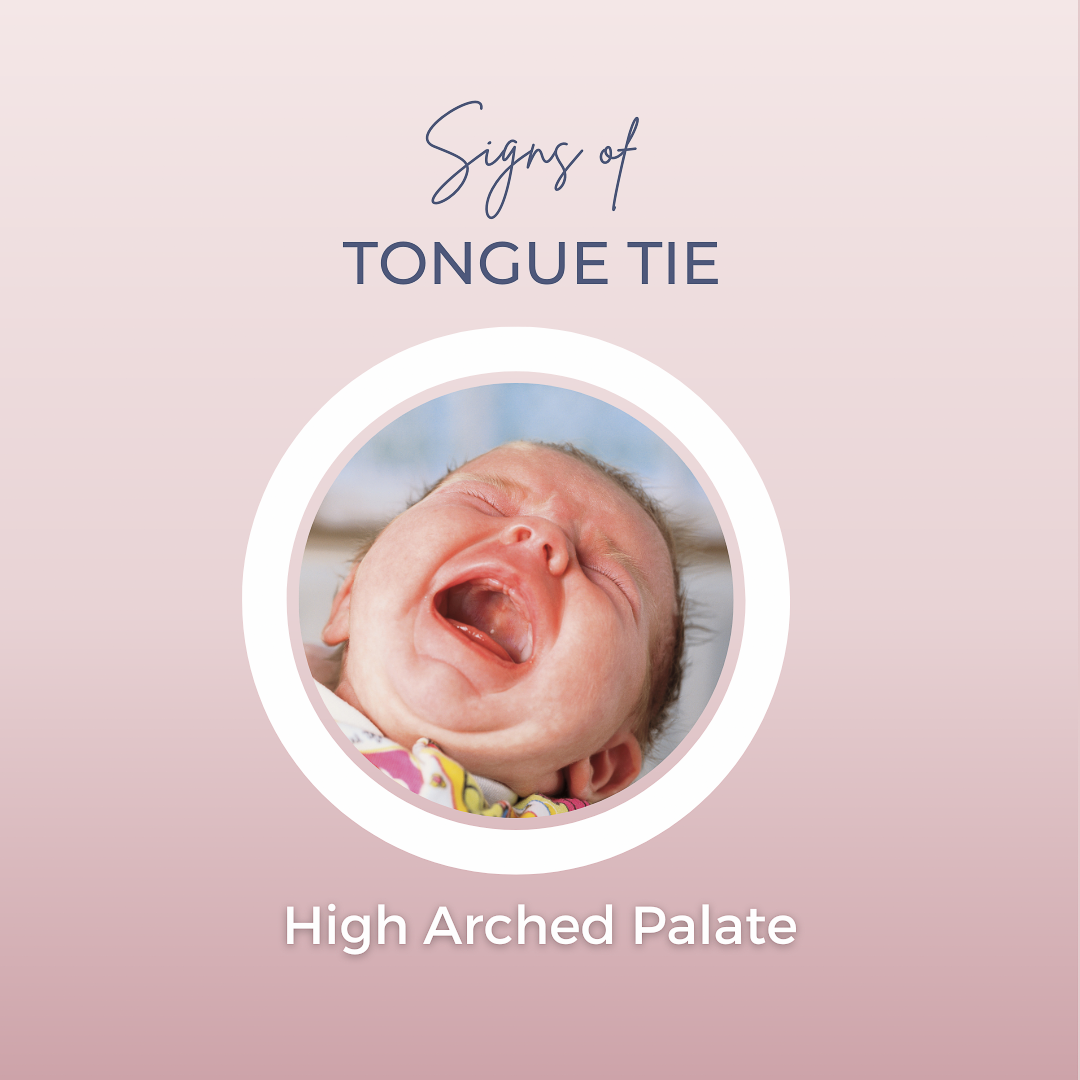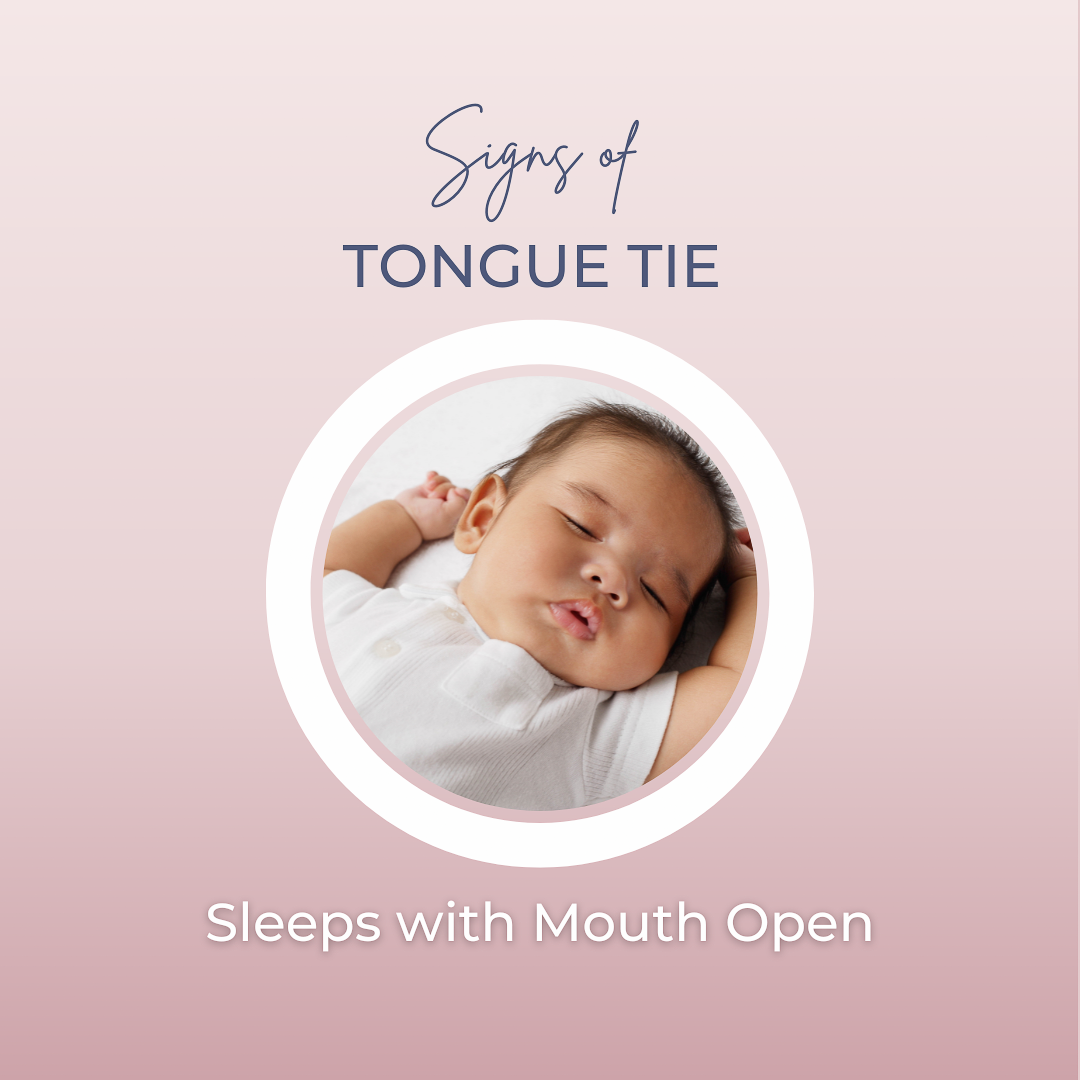Tongue Tied Baby: Signs and Symptoms
Infant Tongue, Lip, and, Cheek Ties
If you're a new parent, there's no doubt that you have a million questions about your little one's health and wellbeing. Tongue tie (ankloglossia) is an issue many parents have questions about. Tongue tie occurs when the band of tissue (the frenulum) that attaches the tongue to the bottom of the mouth is too short, tight, or thick. This can make it difficult for babies to breastfeed or bottle feed effectively.
There are often visual signs of tongue, lip and cheek ties. In this post, I review the signs of oral ties in newborns. Many of these symptoms can also just be oral motor difficulties.
Lip Tie (labial frenulum)
You may notice that breastfeeding feels pinchy or that your baby’s top lip is tucked in. This may suggest the presence of a lip tie. Babies are supposed to have enough flexibility to be able to flange their upper and lower lip out during feeds. If a baby can’t flange their upper lip, this can be due to a lip tie. We all have a labial frenulum, which is the strand of tissue that connects your lip to your gums. When there is a lip tie this tissue, may be thick, tight, or inflexible. Lip ties and tongue ties often go together.
Cobblestone Blisters
Sucking blisters are also known as cobblestone blisters. They can develop as compensation because of restrictions in the lip or tongue. Babies who are over using their lips like this are using compensatory movement that is often not as effective for milk transfer. Feeds may take longer or your baby may get tired during feeds.
High Arched Palate
The tongue helps form the shape of the palate. When a tongue's movement is restricted by a tongue tie, it cannot reach the roof of the mouth. The absence of pressure from the tongue causes the palate to form in a bubble shape. You may notice that your baby sleeps with their mouth open or that its palate seems to dip in the front or the back. It could also be dome-shaped. When this happens the maxilla takes space from the nasal sinus which affects respiration. When space is taken from the nasal sinus this can affect your baby's ability to breathe through their nose.
Baby Sleeps with an Open Mouth
Babies are considered obligate nose breathers, which means they are supposed to breathe through their noses unless they are crying. Sleeping with an open mouth posture is an indicator that they are not able to effectively breathe through their nose. As I mentioned before, when there is a tie, the tongue does not reach the roof of the mouth, which can affect the shape of the nasal sinus. This makes it challenging to breathe through the nose. It’s important because breathing through your nose warms and humidifies the air and it allows us to sleep well. Breathing issues can lead to poor sleep.
Heart Shaped Tongue
When a baby has a tight restricted lingual frenulum, they might have an indentation in their tongue when they stick it out. This is a heart-shaped or notched tongue. It is caused by the frenulum pulling on the underside of the tongue, causing it to become more triangular in shape. While not all cases of tongue tie result in a heart-shaped tongue, it can be a helpful indicator for healthcare providers when diagnosing the condition.
Milk Tongue
Milk tongue is often confused with thrush. It’s a build-up of milk and microbiome. This substance is usually scraped off by the friction of the tongue on the roof or during feeds. It can often be seen in babies with tongue-tie since their tongue is restricted from it’s full range of motion.
Posterior Tongue Tie
Posterior tongue ties, also known as submucosal tongue ties, are a common but often overlooked condition that can impact a baby's ability to breastfeed effectively and cause other feeding difficulties. Unlike the more apparent anterior tongue ties, posterior tongue ties are harder to diagnose due to their location beneath the mucous membrane. This can make it challenging for healthcare professionals to identify the problem, leading to frustrated parents and confused babies.
Posterior Tongue Tie Symptoms: Clicking During Breastfeeding
Posterior tongue ties can affect the range of motion and flexibility of the tongue, which can hinder proper latch and sucking during breastfeeding. You might notice clicking during feeds or that the latch is painful or has a chompy quality.
Gassiness and reflux are common because babies take in more air from not being able to sustain their latch. Feeding may take a long time and not just with breastfeeding but also with bottle feeding. As a result, babies may experience difficulties in gaining weight, decreased milk transfer, and discomfort following feeds. Craniosacal therapy can often be useful in addressing the whole body symptoms associated with oral ties. Learn more about craniosacral below.
Cheek Ties (Buccal Ties)
We often hear about tongue ties in newborns, but we can also have cheek ties (buccal ties). Just like with tongue ties, cheek ties can also impact a baby's ability to breastfeed effectively. Cheek ties occur when the tissue connecting the cheek to the gums is too tight. This can lead to difficulties in achieving a proper latch while breastfeeding, which might cause discomfort for both the baby and the parent. Signs of cheek ties include difficulty maintaining a seal around the nipple, frequent loss of suction during feeding, and even a clicking sound during nursing.
What to do about a tongue tie?
If you suspect your baby has oral motor difficulties, tongue, lip or cheek ties, reach out to a skilled lactation consultant or therapist that specializes in oral ties. It's important to get help early, especially if breastfeeding is painful. Mothers who report having painful feeds are at a higher risk of weaning before they would have wanted to. If you are in the Charleston area and need tongue tie support, reach out to Nurture and Nourish Services. More about me and my practice below.
copyright © 2022 Erica Rampant

Nurture and Nourish Services
As a lactation consultant and pediatric OT, and Craniosacral provider with advanced training in infant ties, I can address the variety of challenges that come with tethered oral tissue. Many babies need a combination of skills to see optimal outcomes. This might mean help with breast or bottle feeding, oral motor treatment, strengthening, or craniosacral therapy for tension.
Get help
If you need help with tongue ties or are considering a release in Charleston, reach out to Nurture and Nourish Services today. I also offer virtual support if you can’t find a provider in your area. I can help you through this process whether you decide to get a release or not. I offer free 15 minute discovery calls.
Charleston Tongue Tie Support
copyright © 2022 Erica Rampant











